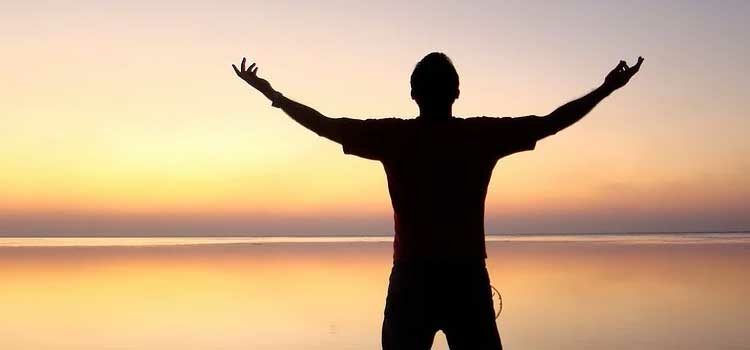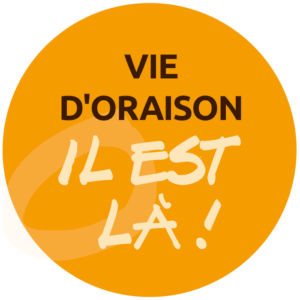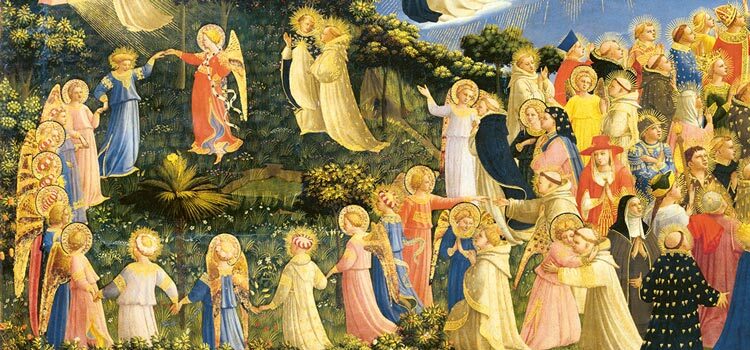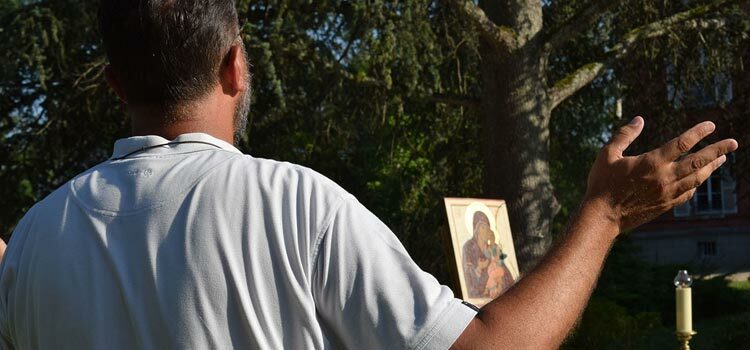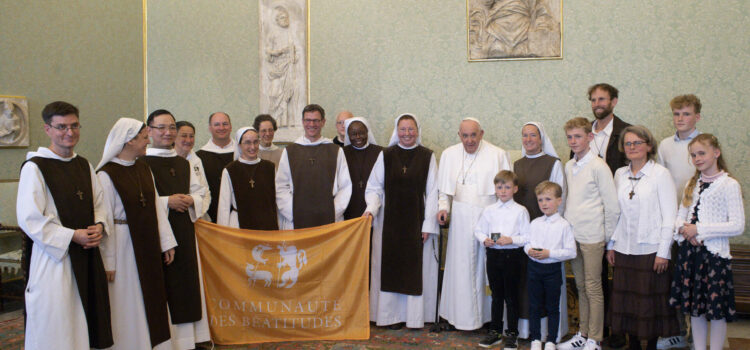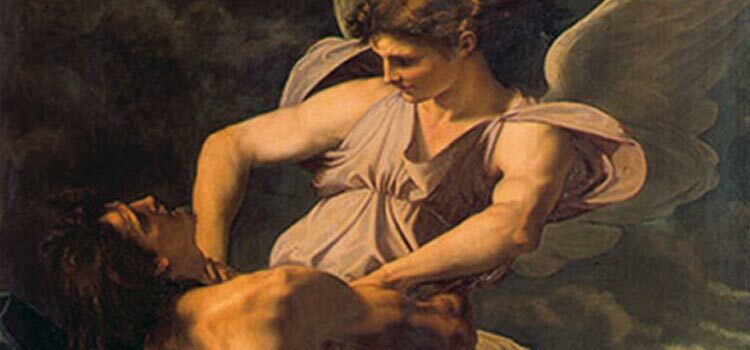When God created man he gave him free will and freedom which is the ability to reach his own goal : God Himself. Shaping him in His image and likeness, he endowed him with reason thus enabling him to orientate his life and make responsible choices. « It his he who in the beginning created man, and left him to his free will. If you want to, you can keep the commandments, and acting faithfully is your choice alone » (Sir 15, 14-15).
Freedom & dependance
Now, as we well know, man is by nature a being in relationship, created not to be solitary but to live in communion, in depending on Another (his Creator). Thus, when man rises up against God, he abuses his freedom and finds himself, in spite of himself, divided in his innermost being.
The dependency here lies in the fact that we are not our own origin and cannot live without rule, without responsibility, without speech. True life is a relationship of friendship, love and communion with others. So we have to move towards a gradual adjustment in relation to things, events, our history, our relationships, in the face of external pressures, etc.
Thus spiritual life is a real school of freedom. It is the ecosystem that allows us to become really free, daring to choose and to take risks, letting ourselves be liberated from the gaze and judgment of others, from the need for recognition, etc. If therefore freedom is a free gift from God to men, then he can decide personally what concerns him (cfr. Gaudium et Spes 14, 2), if it is a gift to receive and not something to conquer, it necessarily implies a path to liberation founded on the liberation Christ Himself brings to us, because He alone sets man free (cfr. Gal 1, 5).
A path to liberation and truth
Jesus is the model of a free man. Free in relation to Mary and Joseph, his family, free from any concern for himself, free in relation to others, free in the face of events he does not force, free from any need to display his power, free in his manner to live his suffering and the Cross, free in relation to the Law, showing the primacy of love, etc. Jesus came into the world as a servant. He learned obedience and freely carried out the will of his Father. By loving as Christ loved and by remaining in his love, we are sure not to take a wrong turn and to walk the path of freedom. We are doing both God’s will and our own. “Love and do what you want”, said Saint Augustine.
So whoever wants to be free will learn every day to love in the manner of Christ to gradually free himself from his egocentricity, his fear of lacking, his spirit of possession, etc.
The time factor is important because freedom is always in the making. We are not suddenly free once and for all. Freedom follows a path which is a slow deposition of oneself so that Christ may dwell in us completely. “It is no longer I who live, it is Christ who lives in me” (Gal 2 : 20). It was Jesus’ love for his Father and his communion with Him that underpinned his freedom. Likewise, the criterion of love must regulate our freedom. We must be free to give up our freedom when that freedom goes against love. Saint Paul’s two arguments (cf. Rom 14 and 15) are concern for our brother and searching for what edifies and builds.
Another aspect to emphasize is that there is no freedom without truth about oneself. “You will know the truth, and the truth will set you free” (Jn 8 : 32) To the extent that we are true to God and to ourselves we are genuinely free. We are able to know what is true, beautiful and good and thus strive freely towards what is Good. Jesus says it clearly : the condition of this liberation is fidelity to His word, to His commandments.
The love of Jesus for men is not restrictive, it always respects our freedom. Jesus’ invitation “if you want to” appeals to our freedom, he adapts to our personal rhythm, takes into account our maturity, our capacities, while maintaining the truth of his message and of the accompanying requirements.
Thus, when we act in truth in our life, we are delivered from our darkness and advance on the path of freedom by becoming responsible for the light that has been given to us.
But Jesus doesn’t just save mankind. He makes sons of us, he trains us to be autonomous, responsible for the gifts received in order to use them well and not abuse them. God reveals himself to man to make of him a son in the Son and to teach him the true freedom of the children of God. Only God is perfectly free. We never are completely so. Real freedom has to be learned every day and lasts a lifetime. As we gradually learn to manage all that God gives us with gratitude and responsibility, we become more and more fruitful.
Our choice of community life and our commitment to a life of prayer are excellent breeding grounds for the growth of our freedom. In fact, through this regular contact with God that we live in faith, through the knowledge of ourselves that flows from it, through the exercise of the love that a community life implies, we gradually allow ourselves to be configured to Christ and enter into His own freedom, for His greatest joy, and for ours.
Prayer
Lord, you know everything, you see everything… Free us from the power of the world, from its deadly, materialistic, consumerist ideas, that may dwell in our heart and in the community.
Free me from myself, from my ideas, from my external and internal slavery (from bad addictions, from wounds that return to haunt me, from the tyranny of my emotions and my sensitivity, from my sins, from the dictatorship of my desires, of my excesses, etc.), of all idolatry and all control.
I come to you, Jesus the free Man par excellence, for you are the only true Way of my freedom!
The Quote
« We will offer to God (…) our whole being through the hands and heart of the Blessed Virgin. Then our mind will possess this precious freedom of soul, so alien to the anxious tension, sadness, depression, constraint, smallness of mind. We shall sail in surrender, freeing ourselves from ourselves to cling to Him, the Infinite One»
Mother Yvonne-Aimée
To go further…Just for today :
Readings
|
Find the previous articles in our “Life of prayer” series.
(publication edited by brothers and sisters of the Community of the Beatitudes – © rights reserved).
